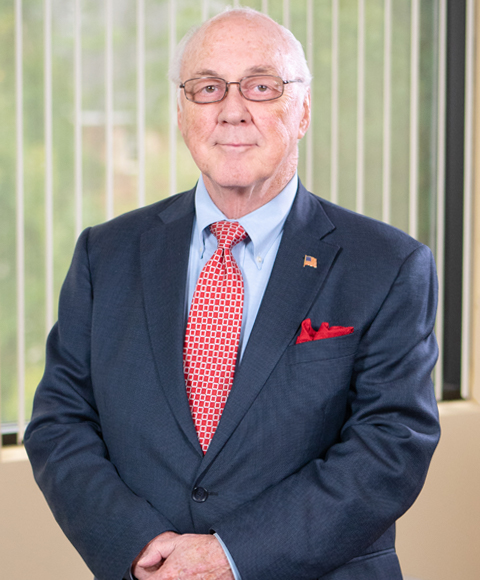The widely publicized and successful recall campaign of San Francisco District Attorney Chesa Boudin has been described by some as a warning call for progressive prosecutors and rehabilitative justice advocates nationwide.
But attorneys, advocates and experts say factors outside of Boudin’s control were used to paint a picture of a soft-on-crime prosecutor, which ultimately resonated with the 55% of voters in San Francisco who decided to remove him from office, and that the national impact of the campaign has been overblown.
“I think it would be premature to write the obituary of the progressive prosecutor movement,” Matt Gonzalez, the chief attorney at the San Francisco Public Defender’s Office, told Law360.
Gonzalez, who served on the San Francisco Board of Supervisors from 2001 and 2005 and ran for several political offices, including a race for San Francisco mayor in 2003 that he lost to current California Gov. Gavin Newsom, said the national movement around progressive prosecution and rehabilitative justice is resilient, and that Boudin’s fate won’t affect it.
“A lot of people when they think about the progressive prosecutor movement, I’m not sure that they sufficiently appreciate the fact that the movement is rooted in ideas that come from the defense community, but also the American left, and issues that we’ve been dealing with for decades,” he said. “It’s not a three-year-old phenomenon.”
Long-established initiatives, such as drug courts, homeless courts and diversion programs, are the product of years of advocacy by public defenders and progressive policies that are unlikely to recede, he said.
Hillary Blout, a former prosecutor in the San Francisco District Attorney’s Office, said Boudin’s recall is not going to change the course of a movement made by prosecutors who want to play a role in reducing incarceration.
“A decision by the voters in one election, in one city, doesn’t impact the work that other prosecutors are already doing,” she said.
Blout, who led the campaign that ushered the first prosecutor-led resentencing law in the nation in 2018, said more district attorney’s offices across the country have abandoned a paradigm based solely on filing criminal charges and embraced policies that consider factors in defendants’ lives such as poverty, lack of education and substance abuse.
“There is real broad support for those ideas,” Blout said. “I think it’s going to continue on in that way. I don’t see things changing.”
Boudin declined to be interviewed for this story. His office declined to comment.
Julie Edwards, a partner at the political consulting firm MJE Strategies and spokesperson for Boudin during the recall campaign, told Law360 that the effort to remove him was shaped by an aggressive media campaign and an unusually high influx of money.
According to a Law360 analysis of campaign contributions reported by the San Francisco Ethics Commission, four committees supporting the recall spent $7.2 million against the roughly $3.3 million raised by four committees opposing the recall — a two-to-one ratio.
“The recall campaign did not have to put up any alternatives. They did not have to put up a candidate who they wanted to replace him. They did not have to put forward any policy solutions or proposals. All they had to do and all they did do was attack Boudin over the course of months. And many of those attacks were false and dishonest,” she said.
Edwards pointed out that unlike campaigns where people vote for a candidate, recall campaigns don’t have limits on contributions. One of the political action committees that bankrolled the recall was funded by two dozen “extremely wealthy individuals,” she said.
Garry Tan, a venture capitalist who invests in the technology sector and one of the largest donors to the recall campaign, said the effort to remove Boudin was about accountability.
“We expect our elected officials to, at the very least, faithfully perform the very basic functions of their offices. This public duty should always trump ideological crusades and personal political agendas. Elected officials represent the entire community, not just those who voted for them,” Tan said in a statement the day after the election.
According to data recorded by the district attorney’s office and analyzed by Law360 showing prosecutorial action between 2011 and 2020, in the nine years preceding Boudin’s arrival, the office filed charges on an average of 44% of cases and took action in about 68% of them by taking steps such as initiating a motion to revoke probation or parole, referring the case back to the arresting agency for further investigation, or referring the case to another criminal justice agency.
The filing and action rates remained consistent throughout Boudin’s tenure.
In 2020, the year he took office, the office filed 27% fewer felonies and 47% fewer misdemeanors than the previous nine-year average. Although charges filed were up in 2021, there were still 21% fewer felonies and 41% fewer misdemeanors than in the nine years before his term began.
A district attorney’s office can only prosecute cases when arrests are made. A study on arrests and clearance rates in San Francisco between 2010 and 2021 done by the Center on Juvenile and Criminal Justice shows that the San Francisco Police Department solves about 10% of cases.
The SFPD declined to comment on the recall.
“While Chief [William] Scott admits that he and the District Attorney Boudin had their disagreements, he maintains that they had a candid and very professional relationship,” Officer Robert Rueca, a spokesperson for the department, said in an email.
A second study by the Center on Juvenile and Criminal Justice published earlier this month found that violent crime rates have risen an average of 9% in Sacramento, a city with a conservative-leaning prosecutor, while falling an average of 29% in San Francisco from 2014 to 2021.
Edwards said that, despite those numbers, progressive prosecutors have been the target of more criticism. Boudin’s recall campaign was the climax of that, she said.
“We don’t have a national conversation about what is happening in Jacksonville, Florida, which has a Republican governor, a Republican mayor, a Republican district attorney, is the same size as San Francisco and has a homicide rate that I think is three times as much as San Francisco’s.”
John Pfaff, a professor at Fordham University School of Law, said Boudin’s recall is less indicative of how progressive prosecution policies are performing nationwide than it is of the failure of the SFPD in making arrests.
“We blame the DAs for what are ultimately policing failures,” Pfaff told Law360. “There’s a growing body of empirical work showing that shifting from a tough-on-crime prosecutor to a reform prosecutor does not seem to lead to any increase in crime, across multiple cities.”
Pfaff said Boudin’s recall is hardly a harbinger of other defeats to come for criminal justice reformers.
“There’s been this big push to try to tell what are the national implications of this recall. I think in general, no one DA race tells us some big national story, because DA races are very localized,” he said. “Even just eight or nine years ago, progressive DAs weren’t even a thing.”
Representatives for the prosecutorial offices in New York City declined to comment on Boudin’s recall or whether it will inform their policies. A spokesperson for the Manhattan district attorney’s office declined to comment on whether Boudin’s removal was a cautionary tale, but went to great lengths in describing statistics that the spokesperson said showed the office, and its boss, are doing a good job.
Manhattan District Attorney Alvin Bragg has been the target of the type of criticism that ended up unseating Boudin. Since he took office in January after a hotly contested Democratic primary election last year, Bragg has withstood fierce backlash and calls for his resignation.
A now infamous Jan. 3 internal memo, in which he asked his assistant prosecutors to ask courts for bail only for defendants who committed serious violent crimes, set off calls for his removal — mostly playing out in the city’s tabloid media — that have continued since. A series of high-profile crimes and overall rise in gun shootings right before he took office magnified a perception that Bragg is soft on crime.
But unlike in California, which permits recall elections, in New York, public officials can only be removed through a process that involves an investigation initiated by the governor.
Under Section 34 of the state’s Public Officers Law, New York Gov. Kathy Hochul could appoint an investigator — it could be a judge or a special commissioner — to probe whether Bragg is fulfilling the duties of his office and make recommendations. The governor would make the ultimate decision to remove him.
“The district attorney is not allowed to change the penal law,” said Donald Chesworth, the former district attorney of New York’s Monroe County who is now a partner at Albany-based Tully Rinckey PLLC.
Despite nationwide attention on Boudin’s recall campaign and one still underway for another reformer, Los Angeles County District Attorney George Gascón, progressive prosecutors across the country have continued to score political wins.
Larry Krasner, who ran on a platform to reduce incarceration, won reelection last year in Philadelphia.
Asked whether Boudin’s recall is a cause for concern, a spokesperson for his office pointed to the election’s result, saying Krasner “trounced” his opponents, “so, no.”
Brooklyn’s current district attorney, Eric Gonzalez, who is considered a national leader in progressive prosecution policies, ran unopposed last year. Kim Foxx, Chicago’s top prosecutor, and Kimberly Gardner, the circuit attorney for the city of St. Louis, also were reelected in the last two years.
In recent weeks, two other progressive district attorney candidates, Kimberly Graham and Satana Deberry, both sailed to victory in Democratic primaries.
Tess Cohen, a criminal defense attorney at ZMO Law PLLC and former prosecutor who is running for district attorney in the Bronx, said Boudin’s defeat has to do with circumstances that are somewhat unique to San Francisco, in particular the inequalities separating its wealthier residents from its poorer ones.
“Whenever you have a movement that’s trying to change long-standing institutions, there’s always going to be setbacks like this, particularly with the difficulties that are inherent in San Francisco,” she said. “There are a lot of reasons to be very hopeful that this movement is going to continue despite this.”




